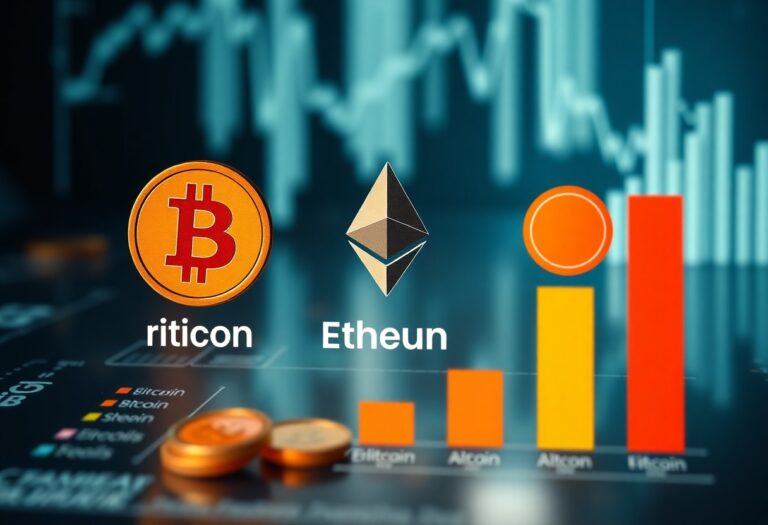What Is a Crypto Token vs. a Coin? (Beginner-Friendly)
You may be confused about the difference between a crypto token and a coin, but understanding this distinction is imperative for navigating the cryptocurrency landscape. Coins typically operate independently on their own blockchain, while tokens are built on existing blockchains and often serve specific functionalities or represent assets. Knowing these definitions not only enhances your knowledge but also informs your investment decisions, helping you navigate potential risks and opportunities in the digital currency space.
Definition of Cryptocurrency
While cryptocurrencies are often perceived as a new form of digital cash, they encompass a broader range of digital assets. At their core, cryptocurrencies utilize blockchain technology to ensure secure financial transactions and data integrity. They operate independently of a central authority, making them decentralized and resistant to censorship or control. Understanding this foundational aspect is key to navigating the cryptocurrency landscape.
What is a Coin?
About coins, they are digital currencies that operate on their own blockchains. The most well-known example is Bitcoin, which serves as a medium of exchange and a store of value. Coins are primarily designed for transactions and can be used to buy goods and services, transfer wealth, or even serve as investment assets.
What is a Token?
Token refers to a type of cryptocurrency that does not have its own blockchain but operates on an existing one, such as Ethereum. Tokens can represent various assets or utilities within a specific platform or ecosystem. They often serve specific functions, like granting access to a service or product, enabling voting rights in a governance system, or representing real-world assets.
Further, tokens can be classified into categories like utility tokens, security tokens, and stablecoins, each with its own purpose and regulations. Utility tokens are often used to access features within a platform, while security tokens may represent ownership in a company or asset. It is important for you to understand that the regulatory environment surrounding tokens can be complex, as some may be deemed securities, which carries legal obligations and risks. Therefore, you should always conduct thorough research before investing in or utilizing tokens.
Key Differences Between Coins and Tokens
Some might find it challenging to distinguish between crypto coins and tokens, but understanding their differences is necessary for navigating the digital currency landscape. Coins, like Bitcoin and Ethereum, typically operate on their own blockchain and are primarily used as a form of digital currency or a store of value. In contrast, tokens exist on existing blockchains (like Ethereum) and can represent a variety of assets or utilities, serving different purposes beyond mere currency.
Functionality
Functionality varies significantly between coins and tokens. Coins are designed primarily for transactions and act as a medium of exchange. You can use them for purchasing goods or services, much like traditional currency. On the other hand, tokens can serve many roles, such as representing ownership in assets, enabling access to specific applications, or powering decentralized finance (DeFi) projects.
Use Cases
About the use cases, coins are generally centered around payments and value transfer, providing an alternative to fiat currencies. Conversely, tokens can embody a vast range of applications, from governance tokens that give holders voting rights in a decentralized organization to utility tokens that grant access to a particular service or product.
For instance, utility tokens often allow you to access specific platforms or services, while security tokens can represent ownership shares in an asset. This diversity in use cases illustrates how tokens can empower innovative business models and provide a broader scope of functionality in various sectors, including real estate, finance, and entertainment.
Popular Examples of Coins and Tokens
Notable Coins
Coins are typically standalone cryptocurrencies that operate on their own blockchain. For instance, Bitcoin (BTC), the first and most recognized cryptocurrency, was created to enable peer-to-peer transactions without intermediaries. Another notable coin is Ethereum (ETH), which supports smart contracts and decentralized applications, paving the way for innovations in various industries.
Notable Tokens
Popular tokens are often built on existing blockchains and can serve different functions within their ecosystems. For example, Chainlink (LINK) facilitates external data access for smart contracts, while Uniswap (UNI) serves as a governance token for the popular decentralized exchange.
Considering the variety of tokens, it’s vital to assess their roles within their respective platforms. Some may provide utility, like transaction fees or access to services, while others may represent assets or governance rights. Always evaluate the strength of the project, its development team, and the overall market sentiment to make informed decisions about investing in these tokens.
How to Use Coins and Tokens
Transactions
Any time you make a purchase or transfer money, you can use coins or tokens, depending on the network they operate on. Coins, such as Bitcoin or Ethereum, are generally used for transactions as they are designed to function as digital currency. In contrast, tokens are often used on specific platforms for various purposes, such as accessing services or products, which might include transaction fees within decentralized applications. It’s vital to choose the right form of digital currency based on the context of your transaction.
Any transaction using cryptocurrencies typically involves a wallet to store your coins or tokens and a platform for exchanging them, such as a cryptocurrency exchange. When you send a transaction, you may also encounter network fees that can vary significantly based on the coin or token you’re using. Being aware of these elements will help you make informed choices and manage your funds efficiently.
Investments
One of the key uses of coins and tokens is for investment purposes. You can purchase these digital assets with the expectation that their value will increase over time. While coins like Bitcoin and Ethereum have established themselves in the market, tokens can offer varying levels of risk and potential reward depending on their underlying projects. As an investor, it’s vital to research the fundamentals of each asset and assess the market trends that influence their price.
And, you should also be aware of the volatility associated with cryptocurrency investments, as price swings can lead to substantial gains or losses. Educating yourself about the market, diversifying your investments, and adopting a strategic approach will enhance your ability to navigate the landscape. Always consider the risks involved and consult with a financial advisor if needed to help safeguard your investments.
Advantages and Disadvantages
Many factors influence the decision to use either crypto tokens or coins, ultimately boiling down to their inherent advantages and disadvantages. While coins primarily serve as a digital currency, tokens offer a broader range of functionalities, enabling various applications from utility services to governance models within blockchain ecosystems. Understanding these aspects will help you make informed decisions about which asset best suits your needs.
Pros of Coins
Below are some key advantages of using coins in the cryptocurrency market. One significant benefit is that coins typically have a more stable market presence, often backed by a dedicated blockchain that supports their transactions. This stability can offer you better security as you engage in trades or store your assets. Furthermore, coins like Bitcoin and Ethereum have established themselves as household names, fostering confidence among users and investors, which can enhance your trust in their long-term viability.
Cons of Tokens
On the other hand, there are notable disadvantages when it comes to crypto tokens. One of the primary concerns is the potential for scams and fraud, as the token market is often less regulated compared to coins. This lack of oversight can expose you to risks, especially if you’re investing in newer, unverified projects. Additionally, many tokens rely on the success and stability of their host blockchain, which means that if the underlying technology fails, your investment may diminish significantly.
Another drawback is the issue of liquidity. Unlike more established coins, many tokens have lower trading volumes, making it challenging for you to buy or sell them without impacting their market price. This situation can lead to prolonged waiting times when attempting to exit or enter positions, potentially locking your funds when you need them most. It’s necessary to thoroughly research tokens before investing to avoid falling victim to these pitfalls.
Future of Coins and Tokens
Despite the rapid evolution of the cryptocurrency landscape, the future of coins and tokens looks promising yet uncertain. As you explore these digital assets, you’ll find that coins may begin to integrate more with traditional finance, potentially leading to increased adoption and regulation. However, the interactions between coins and tokens could also shape the market dynamics, as tokens often reflect innovative projects that drive new use cases, giving you numerous opportunities to invest.
On the other hand, you should be cautious of the volatility and risks associated with these investments. With the rise of various altcoins and tokens, market manipulation poses a serious challenge, making it crucial for you to conduct thorough research. The future may see increased interoperability between coins and tokens, allowing for exciting synergies and applications in different industries. As you navigate this landscape, staying informed will enable you to make better decisions for your investment strategy.
Final Words
Now that you have a clearer understanding of the distinction between crypto tokens and coins, you can make more informed decisions in the cryptocurrency space. Coins typically serve as digital currencies, facilitating transactions and acting as a store of value, while tokens can represent various assets or utilities within a specific ecosystem. By recognizing these differences, you will be better equipped to navigate the diverse offerings available in the market.
As you continue your journey into the world of cryptocurrency, keep in mind the importance of understanding the underlying technology and use cases for both coins and tokens. This knowledge will not only enhance your investment strategies but also empower you to engage more effectively with the projects that resonate with your goals and interests.







